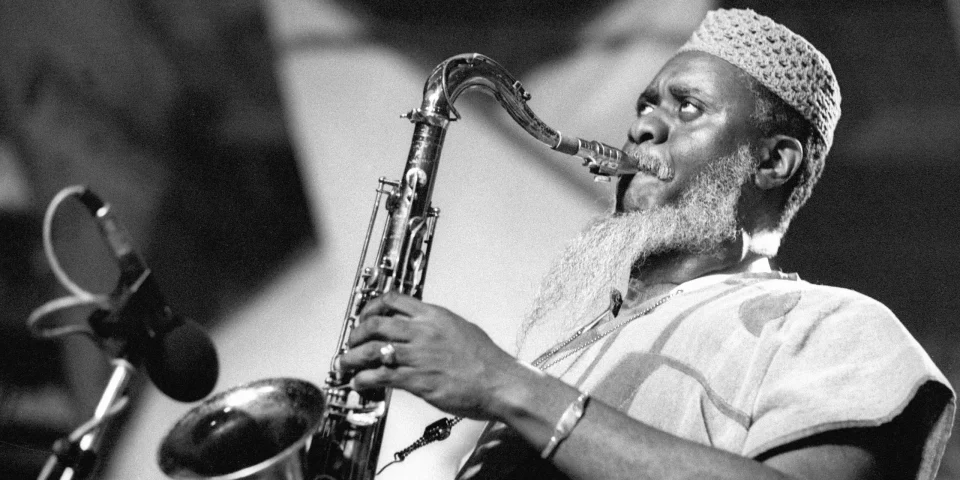Born Farrell Sanders on October 13, 1940, in Little Rock, Arkansas, Sanders—who, like many great jazzmen, picked up an aristocratic nickname later on—grew up surrounded by musical influences. His grandfather, a school teacher, taught both mathematics and music, while his mother and sisters sang in clubs and gave piano lessons. Sanders himself started out playing drums with his high school band but soon learned to play tuba, baritone horn, clarinet, and flute as well.
In 1959, still a member of his school’s band, Sanders picked up the tenor saxophone, and the instrument resonated a sound that instantly captivated him. At first, Sanders focused mostly on rhythm and blues melodies—eventually backing Bobby Bland at a local club and touring for a short time with a band called the Thrillers—until his school band teacher and one of his major influences, Jimmy Cannon, introduced him to the jazz style. Aside from his idol John Coltrane, Sanders cited Little Rock during the 1950s as a source of significant influence.

“There were also a lot of guys in addition to Cannon who came down from Memphis to work and get paid in the clubs there,” he recalled to Martin Johnson of Down Beat in a 1995 interview. “I was only in high school, but I would dress up—put on a suit, put a little thing here like I had a mustache and some dark shades, and sneak into the club. I had to walk a little differently and talk a little differently, but I met some good players like Gilbert Capers. It was a good scene until they closed it down.”
But despite his dedication to and love for music, Sanders envisioned a career in commercial art rather than in jazz. Thus, upon graduating from high school, Sanders left Arkansas, moving to California in 1959 to study at Oakland Junior College. Playing in rhythm and blues clubs in Oakland and San Francisco while attending college, Sanders soon realized that music was his true calling. It was in Oakland that Sanders met Coltrane

